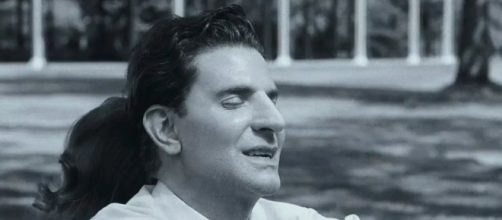Movies that dramatize the lives of artists often overdramatize them.
In the biopic of Jackson Pollock that Ed Harris directed and starred in, he played the painter as a drunk given to tantrums and crying jags with little or no mention of his domestic side: he loved to bake and took pride in his home.
Lead by the nose
Harris bears some resemblance to Pollock, so he saw no need to alter his appearance. Quite the opposite, Bradely Cooper who directed and stars in the upcoming Netflix biopic about Leonard Bernstein, “Maestro,” inexplicably chose to alter his appearance by enlarging his nose.
(More about this in a moment).
Of course, Cooper is not the first film star to get a makeover. Marlon Brando underwent major changes to his face for his role as mob boss Don Vito Corleone. This included prosthetic jowls, presumably to add on years befitting a boss of a crime family.
Perhaps the greatest change to an actor’s appearance was to John Hurt playing "The Elephant Man" – Joseph Merrick – who suffered extreme deformities.
All of which raises the question, why did Cooper need to change his appearance with a large prosthetic?
Certainly, an actor who needed prosthetics was Jose Ferrar playing Cyrano de Bergerac. He had to be fitted with a huge proboscis – reportedly ¾-inch-long – so he could credibly recite Edmond Rostand’s words like “needing a nasal crane to hoist it up.”
Bernstein is no Cyrano
But the Cyrano nose job was integral to his story – his lack of confidence to woo the woman he loved called Roxanne.
It’s notable that Bernstein had no such trouble and was known for having many lovers, both male and female.
Clearly, Bernstein’s nose is not integral to his story, and TV viewers seeing a trailer of “Maestro” objected.
NPR reported complaints on social media sites from Netflix viewers contending that Cooper’s add-on nose made him into an “anti-Semitic caricature.” In the words of one tweet, “This isn’t about making a non-Jewish actor look more like Leonard Bernstein; its about making a non-Jewish actor look more like a Jewish stereotype.”
With apologies to my fellow Jews, I don’t see it that way. I object to Cooper’s prosthetic because the size of Bernstein’s nose doesn’t play a part in his story.
It’s irrelevant.
What’s more, isolating a single feature from one face and plopping it onto another face is bound to look misplaced. I liken this to the bulbous nose seen in Rembrandt’s unflinching self-portraits.
The Old Master’s face was puffy, even flabby, so his fleshy bulbous nose didn’t look out of place. But put that same nose on a face that is not fleshy and it will come off looking like a clown’s nose.
Besides, all this talk of nose size in portraying Bernstein takes him out of the picture. If you’ve ever seen him in concert, you know that his most noticeable aspect was his intensity.
Bernstein had a great presence such that everything about him seemed extra large. If Cooper didn’t capture that, he missed his mark by far more than a nose.


